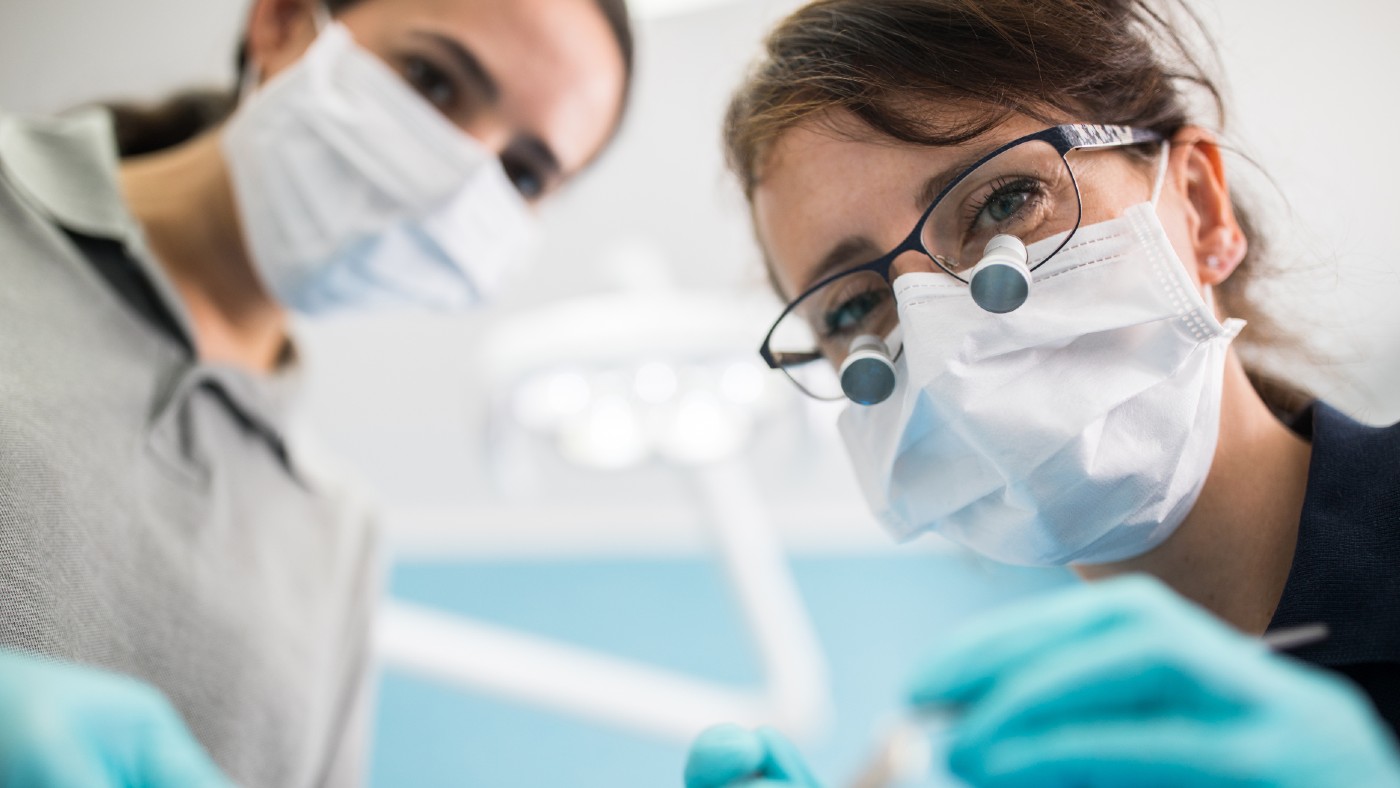The crisis in dentistry: why has finding an NHS dentist become so difficult?
An investigation has found that nine in ten NHS dental practices aren’t accepting new adult patients

A free daily email with the biggest news stories of the day – and the best features from TheWeek.com
You are now subscribed
Your newsletter sign-up was successful
The NHS is meant to provide basic dentistry to all, although since 1951, adults who are not on low incomes have paid contributions for each treatment (currently, an emergency appointment costs £23.80). However, finding NHS appointments has become increasingly difficult.
A comprehensive BBC investigation published in August revealed that nine in ten NHS dental practices across the UK aren’t accepting new adult patients; and eight in ten aren’t taking on children, although children are theoretically entitled to free care on the NHS. In a third of the 200 or so UK council areas, no dentists at all are taking on adult patients; and a tenth of local authorities don’t have any practices taking on under-16s for NHS treatment. Most dental surgeries don’t even have waiting lists.
What are the consequences of this?
Most obviously, people are going to the dentist less. By early this year, only 34% of adults in England had seen a dentist in the preceding two years. In Thurrock, Essex, just 26.1% of adults had seen a dentist in the past two years (and 30.7% of children in the past year). Tooth extraction is now the most common cause of children being admitted to hospital, costing the NHS over £20m a year.
The Week
Escape your echo chamber. Get the facts behind the news, plus analysis from multiple perspectives.

Sign up for The Week's Free Newsletters
From our morning news briefing to a weekly Good News Newsletter, get the best of The Week delivered directly to your inbox.
From our morning news briefing to a weekly Good News Newsletter, get the best of The Week delivered directly to your inbox.
Wealthier people are going private: some 21% of people in the southeast have a private dentist. But those who can’t afford private care are resorting to “DIY dentistry”, or “dental tourism”, travelling to places such as Hungary, Turkey, Nepal for treatments as basic as fillings. Some areas of the UK, such as Lincolnshire and Norfolk, have been called “dental deserts” owing to the dearth of NHS dentists. Ashfield in Nottinghamshire has the lowest number, with just one dentist per 16,129 people.
Why is this happening?
As with the rest of the NHS, staff shortages are a critical issue. Over 2,000 out of just under 24,000 dentists providing NHS care in England quit the health service last year, according to NHS figures; 951 left the year before that. Each of those dentists would have had a caseload of about 2,000 patients, leaving perhaps four million people without access to NHS care.
So why the exodus? Some dental practices say that their staffing levels have taken a hit since Brexit, which affected recruitment of staff from Europe. Others cite the pandemic, when many foreign staff at dental practices returned home, or dentists simply reassessed their working lives. Yet many agree that the problems in their sector date back to long before Covid, and have their roots in a new contract system for NHS work, brought in 16 years ago.
What changed in 2006?
About 90% of UK dentistry is provided by independent high street dental practices, which are contracted to deliver NHS services; the government pays about 70% of the cost, patients 30%. Before 2006, dentists were paid for each piece of work they did. But the reforms of that year mean that dentists in England now receive a “block contract” from their primary care trust, committing them to perform a certain number of “units of dental activity” for a negotiated fee, paid for by the NHS.
A free daily email with the biggest news stories of the day – and the best features from TheWeek.com
If they don’t complete 96% of that work, they must pay back some of the money paid to them; but the amount of work they do is also capped, which is why patients are often told by practices that they cannot be accommodated. The trade body, the British Dental Association, describes this as a “broken contract” because funding is insufficient, and because the system is structured unfairly: for instance, they don’t get paid for the time and multiple appointments involved in complex cases.
Is that a fair criticism?
There’s no doubt that dentists are being driven away from NHS work. The British Dental Association says that “dentists are simply not seeing a future in the NHS”, and that if they want to do NHS dentistry, they have to cross-subsidise it with their private work. Many experts would agree.
Ian Mills, an associate professor of primary care dentistry at the University of Plymouth, estimates that the current level of funding is only sufficient to provide care for 50% of the population, because funding has reduced heavily in real terms since the contract was introduced in 2006. The problem is particularly acute now, owing to the rising costs of wages, materials, consumables, laboratory items, and to the effects of the pandemic, when as many as one in five practices reported that they were on the brink of collapse.
What does the government say?
Successive governments have recognised that the current situation is inadequate. In May, Boris Johnson’s government said it was “working closely with the NHS to reform the dental system”, and negotiating improvements to the contract with the British Dental Association.
The Department of Health and Social Care said at the time that it had made £50m available to the NHS to fund up to 350,000 extra dental appointments. The new Health Secretary, Thérèse Coffey, has included dentistry on her “ABCD” list of priorities – ambulances, backlogs, care, doctors and dentists – promising to improve contracts and “support the dental workforce”.
Are there grounds for optimism?
In the short term, not really. The British Dental Association says an immediate funding injection of about £880m is needed to stabilise the situation. But the NHS – like many public services – is currently beset by urgent funding problems, and dentistry has tended to be a relatively low priority.
That may represent a false saving: if not treated, dental problems tend to get worse, and more expensive to treat. The situation remains profoundly difficult. The UK has one of the lowest per capita ratios of dentists in Europe: 54 per 100,000 people, according to a 2020 study, compared with 65 in France and 82 in Germany. Without reform and considerable investment, the current problems will only get worse.
-
 What is the endgame in the DHS shutdown?
What is the endgame in the DHS shutdown?Today’s Big Question Democrats want to rein in ICE’s immigration crackdown
-
 ‘Poor time management isn’t just an inconvenience’
‘Poor time management isn’t just an inconvenience’Instant Opinion Opinion, comment and editorials of the day
-
 Bad Bunny’s Super Bowl: A win for unity
Bad Bunny’s Super Bowl: A win for unityFeature The global superstar's halftime show was a celebration for everyone to enjoy
-
 Growing a brain in the lab
Growing a brain in the labFeature It's a tiny version of a developing human cerebral cortex
-
 A real head scratcher: how scabies returned to the UK
A real head scratcher: how scabies returned to the UKThe Explainer The ‘Victorian-era’ condition is on the rise in the UK, and experts aren’t sure why
-
 Health: Will Kennedy dismantle U.S. immunization policy?
Health: Will Kennedy dismantle U.S. immunization policy?Feature ‘America’s vaccine playbook is being rewritten by people who don’t believe in them’
-
 How dangerous is the ‘K’ strain super-flu?
How dangerous is the ‘K’ strain super-flu?The Explainer Surge in cases of new variant H3N2 flu in UK and around the world
-
 Obesity drugs: Will Trump’s plan lower costs?
Obesity drugs: Will Trump’s plan lower costs?Feature Even $149 a month, the advertised price for a starting dose of a still-in-development GLP-1 pill on TrumpRx, will be too big a burden for the many Americans ‘struggling to afford groceries’
-
 Ultra-processed America
Ultra-processed AmericaFeature Highly processed foods make up most of our diet. Is that so bad?
-
 The ‘menopause gold rush’
The ‘menopause gold rush’Under the Radar Women vulnerable to misinformation and marketing of ‘unregulated’ products
-
 The quest to defy ageing
The quest to defy ageingThe Explainer Humanity has fantasised about finding the fountain of youth for millennia. How close are we now?